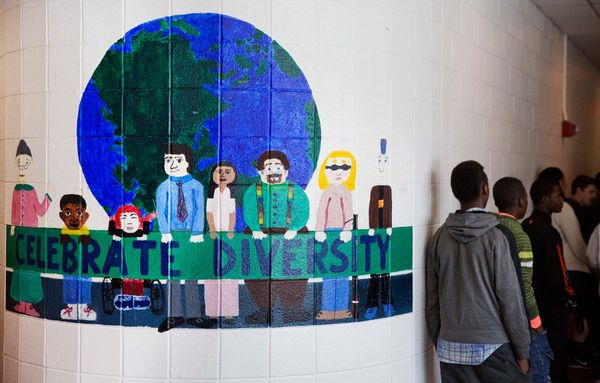
A new study of children living through the war in Gaza has found that 96% of them feel that their death is imminent and almost half want to die as a result of the trauma they have been through.
A needs assessment, carried out by a Gaza-based NGO sponsored by the War Child Alliance charity, also found that 92% of the children in the survey were “not accepting of reality”, 79% suffer from nightmares and 73% exhibit symptoms of aggression.
“This report lays bare that Gaza is one of the most horrifying places in the world to be a child,” Helen Pattinson, chief executive of War Child UK, said. “Alongside the levelling of hospitals, schools and homes, a trail of psychological destruction has caused wounds unseen but no less destructive on children who hold no responsibility for this war.”
The survey questioned parents or caregivers of 504 children from families where at least one child is disabled, injured or unaccompanied. The sample was split between southern and northern Gaza and was complemented by more in-depth interviews. The survey was carried out in June this year, so is likely to understate the accumulated psychological impact of Gaza’s children now, after more than 14 months of Israel’s assault on the territory.
The estimated death toll in Gaza is more than 44,000 and a recent assessment by the UN Human Rights Office found that 44% of the fatalities it was able to verify were children.
The new psychological survey published on Wednesday was carried out by a Gaza-based organisation, the Community Training Centre for Crisis Management, with backing from the Dutch Relief Alliance as well as the War Child Alliance.
“The psychological toll on children was severe, with high levels of stress manifested in symptoms such as fear, anxiety, sleep disturbances, nightmares, nail biting, difficulty concentrating and social withdrawal,” the report said. “Children have witnessed the bombing of their homes and schools, experienced the loss of loved ones, and have been displaced or separated from their families while fleeing for safety.”
About 1.9 million Palestinians in Gaza, approximately 90% of the territory’s total population, have been displaced, many several times. Half of that number are children who have lost their home and been forced to flee their neighbourhoods.
More than 60% of the surveyed children reported having experienced traumatic events during the war and some had been exposed to multiple traumatic events.
An estimated 17,000 children in Gaza are unaccompanied, separated from their parents, although the study notes the real number may be much higher.
The report warns: “Being separated from their families places these children at a heightened risk of exploitation, abuse and other serious violations of their rights.”
“As a result of such exposure, children develop responses that may persist long after the war has ceased, profoundly affecting their daily lives,” it adds. “Traumatic responses can manifest in various ways, including ongoing emotional distress, anxiety, behavioural changes, difficulties in relationships, regression, nightmares, sleep disturbances, eating issues, and physical symptoms such as pain.”
The sense of being doomed has become pervasive. Almost all the children (96%) felt their death was imminent, and 49% actually wished to die, a feeling that was much more prevalent among boys (72%) than girls (26%).
War Child says the charity and its partners have so far been able to reach 17,000 children in Gaza to provide mental health support, but it ultimately aims to reach a million children with psychosocial and other support, in what it says will be the biggest humanitarian response in its three-decade history.
Pattinson said: “The international community must act now before the child mental health catastrophe we are witnessing embeds itself into multigenerational trauma, the consequences of which the region will be dealing with for decades to come.”







